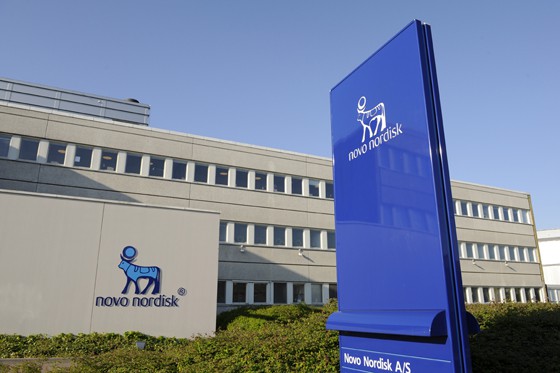
Novo Nordisk has fired the latest salvo in its bid to capture sales from Sanofi’s market-leading long-acting insulin Lantus (insulin glargine).
The Danish pharma company released data over the weekend at the American Diabetes Association’s (ADA) Scientific Sessions in Chicago showing hypoglycaemia benefits for its new long-acting insulin Tresiba (insulin degludec).
Novo said its product manage a 43 per cent lower rate of nocturnal hypoglycaemia among type 2 diabetes patients, compared to Sanofi’s blockbuster, in the one-year extension BEGIN ONCE LONG trial.
Speaking to PMLiVE in Chicago, Novo’s chief science officer Mads Krogsgaard Thomsen said: “Nocturnal hypoglycaemia is a serious concern for the patient and his or her family and when you can show improvements that makes patient much more comfortable when they go to bed at night time.”
“We think the hypoglycaemia benefit is the main driver of the quality of life benefits,” he added.
Nocturnal hypoglycemia, or low blood sugar, is a common, but frightening, side effect for diabetes patients who use insulin, and symptoms are usually only realised when they wake up.
Novo’s BEGIN ONCE LONG study also showed a physical health benefit when compared to Sanofi’s Lantus, with statistically significant benefits in physical activities like walking and getting dressed, and less bodily pain that interfered with these activities.
Thomsen said the company plans to use the data as part of its submission to the UK’s cost-effectiveness watchdog NICE.
Tresiba’s US approval delay
Although approved by a number of regulatory authorities around the world, including the EU and Japan, the product faces a significant delay before it can hope to be launched in the US.
There the FDA decided Novo should begin an additional, large cardiovascular trial for Tresiba – a requirement previously only applied to oral diabetes drugs – pre-approval, rather than, as the company had anticipated, post-approval.
“They felt there was a [safety] signal that they wanted to investigate,” Thomsen said.
“Overall, insulin is a very safe product, but of course if the agency feels that there’s a signal they have the right to say they want a trial, and that is what happened, somewhat to our big surprise.”
The company is now awaiting feedback from the regulator on its proposed trial design, but the requirement will significantly delay the product from reaching the lucrative US market, where nearly 26 million people have diabetes.
Thomsen said he expects the cardiovascular trial, which will involve around 7,000 patients and run for up to five years, to begin either later this year or early in 2014, with Tresiba eligible for FDA submission halfway through the study.
“If things pan out every favourably, we should be able to have the product approved for launch around three years from now,” Thomsen said.
Novo also plans to conduct one or two further head-to-head trials between Tresiba and Lantus, specifically looking at benefits of hypoglycaemia.
Thomsen refused to be drawn on the nature of these additional trials, but said Novo planned to discuss their design with regulators once it had finalised its cardiovascular study with the FDA.




